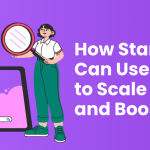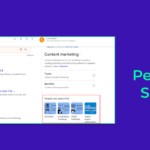Table Of Content
- 1 Seek Professional Advice:
- 2 Be Keen to Buy the Assets and Not the Business:
- 3 Choose the Right Person to handle Your Account Receivables:
- 4 Ask About the Sales before Buying a Business:
- 5 Does Business Have any Prepaid Expenses?
- 6 Find Out Whether You Can Retain the Lease of the Seller:
- 7 The Seller Must be willing to Stay Around for Some Time:
- 8 Negotiate a Letter of Intent:
- 9 Let the Seller Give You an Indemnity:
- 10 Read Laws about Bulk Sales in Your Region:
- 11 Get to Learn the Employees:
Are you thinking about buying a business? You need to be extremely careful because you can either make a good or wrong decision. It is good to do a lot of research about the business before you make your decision.
There is a reason as to why someone decides to sell his or her business and you need to understand why. It is good to buy a business that will not let you down in the long run. Here are some tips that will guide you through the process of buying an existing business.
Seek Professional Advice:
The first thing is to get a good accountant and business lawyer to help you walk through the process. These experts are good because they will help you with the paperwork of the process. Even if you are buying a small business, you can be sure that there will be a lot of paperwork.
You also need to ask several questions before you make a decision to buy a business. Business lawyers and accountants are the best to ask some of these questions. You need someone who will view the business from a professional point of view.
There are so many things that you need to think out and clear about before you buy a business. These two experts will help you to make an informed decision that you will not regret later in life. Therefore, be keen to get a good business lawyer and accountant to guide you through this process.
Be Keen to Buy the Assets and Not the Business:
If the seller is an LLC or corporation, you should not buy the stocks of the business under any circumstances. It is always a good move to buy the assets of the business and make a different firm to act as the purchaser.
The above approach will help you to receive a favorable tax treatment. The reason is that the tax basis in these assets will be the amount of cash that you paid for them. It won’t be the amount that the person selling the business paid for them over time.
The second reason is that if the seller owes some money to other people or someone us seeing him, you will not assume these liabilities as you buy the business. Therefore, it is always wise to buy the business assets and not the business itself.
Choose the Right Person to handle Your Account Receivables:
There are high possibilities that some of the current customers of the enterprise owe the owner some money at the point of selling. You need to plan in advance the person who will be responsible for following up on all the overdue debts.
You may decide to buy the account receivables at the point of taking over the business. However, make sure you get a discount because some of the old clients may not meet their obligation. Buying these accounts may help you because you may continue with the relationship.
Therefore, it is wise to purchase these account receivables upon purchase. If the customer needs more goods and services after you buy the business, you will have stronger bargaining power. Therefore, taking over the current debts will help you retain some of the previous customers.
Ask About the Sales before Buying a Business:
You should not forget to ask about the payroll taxes and sales taxes before buying a business. In most states, even if you buy the assets of a business, the state authority may come after you if they discover that the previous owner owed business taxes like payroll, use, and taxes among others.
If the person selling the business has other employees apart from himself, you need to inquire whether he was utilizing a payroll service. You should also make sure that he is up to date with the payment of employment taxes.
Also, inquire from the tax authorities if the business has an issue with tax clearance. You have to confirm whether the business seller is up to date with his tax obligations. Even though it will take you a lot of time, you will save yourself several headaches down the road.
Does Business Have any Prepaid Expenses?
Apart from looking at the debts, you should also consider any prepaid expenses when buying a business. You can take advantage of advertisements on Yellow Pages. When you purchase a Yellow Page ad, you will always pay for one year in advance.
There is a possibility that you will close at some point during the year. You will have to refund the seller a proportion of his money for the remaining time of the year. Remember you will be the one who will be benefiting from the business from the remaining portion of the year.
In most cases, the prepaid expenses like the security deposit of the seller are not part of the purchase agreement. However, most people will tack them upon the closing period. Make sure you ask the seller a full list of the ‘closing adjustments.’
You should know the prepayment amounts that you will be pro-rating. It will help you to budget for them accordingly, so that don’t get nasty surprises at close up.
Find Out Whether You Can Retain the Lease of the Seller:
Most of the seller in the region lease the premises where their businesses run. If this is the case, you need to find the amount of time that is remaining on the lease term. Some landlords will be willing to let you assume the lease term in its current state while the others will not.
I have seen several landlords increase the rent after buying a business. If the remaining lease period is less than two years, you may prefer to negotiate a new lease agreement that can run you for five to ten years, the other thing you need to find out before buying a business is whether the landlord holds a security deposit.
Most of the landlords will require a minimum security deposit of two months’ rent. The seller will want you to buy the security deposit in addition to the buying price of the business assets. If the seller decides to include the security deposit in the amount of selling the business, make sure you spell it out in the purchase agreement.
The Seller Must be willing to Stay Around for Some Time:
In most service and retail businesses, customers tend to have a personal relationship with the business owner. We cannot run away from the fact that the seller will continue to make an appearance at the enterprise for a few weeks after the closure.
It is good to allow him to make introductions to the current customers and also help you figure out the records. The current customers should know that there is a change in management. Staying around will make sure that the transition is orderly and smooth.
To be cautious, pay the seller for the time that he will be staying around to help you settle. It will motivate him to stay around for some time and help you adapt. You can release him once you are comfortable with what you are doing. It is a crucial step when buying a business from another person.
Negotiate a Letter of Intent:
The other name of a letter of intent when buying a business is a ‘term sheet. It is a short page agreement that has a length of two to three pages. It is written between the buyer and seller of the business and explains all the critical terms and conditions of your sell.
For instance, you will get the purchase price, when and how you will pay the cost of buying the business, the assets that the seller will give to the buyer at the cost and the ones he will retain for his own, the terms of the non-compete agreement of the seller and so forth.
Technically, LOIs are not binding to both parties of the agreement. It is well worth your effort and time to hammer out most of the issues that are involved in the LOI before your business lawyer begins to draft the ultimate legal contracts that are documenting the sale.
An LOI that is well-drafted will help your business lawyer to get all the sale agreements right on the first attempt. The reason is that most of the crucial terms and conditions of the sale will already be addressed in the LOI. Therefore, they will not be a subject to further negotiations.
Once you have an LOI, it will help you to negotiate the ‘legalese’ and business deal of the business deal concurrently. You will not need multiple drafts of the business sale documents and a lot of cash in terms of legal fees.
Let the Seller Give You an Indemnity:
Even if both you and your personal advisors have already torn apart the records and books of the seller, you can overlook some things that are critical. The challenge of overlooking some of these things is that you may be sued in the long run.
You can get in trouble before something the seller did not do right or didn’t do at all for the business. Let the seller give you an indemnity that states that he will defend any lawsuit and meet all fees and judgments in case such a thing takes place.
Besides, be ready to give the person selling the business an indemnity if he will be sued due to a thing that you did. You need to be liable if you fail to do something after the closure of the business deal. Therefore, indemnity is a give-and-take situation and you should not overlook it.
Read Laws about Bulk Sales in Your Region:
Most of the states have scraped the bulk sales laws. However, some states require you to notify the creditor of the seller when buying a business. The sellers should always know that there is a transaction that is taking place.
If you fail to get a list of the creditors of the seller and notify them about the sale, it may bring conflicts later on. Even if the seller does not have any creditors, which is a very rare occurrence, the tax authorities of the state will want you to provide a copy of the ‘bulk sales notice’ to tell whether the person selling the business owes any business taxes and sales.
If the seller has some debts to pay, it is good to allow him to clear the debts before buying a business. It is not good to inherit some of the debts that the seller owes the authorities. No one wants a long list of debtors that are not his responsibility.
Get to Learn the Employees:
The last thing to understand when buying a business is getting to understand the workforce. It is good to make sure that the key employees of the brand are willing to stay around. Allowing them to go may destabilize them for some time.
Most of these employees should be the ones who interact with customers daily. Besides, some of them could be operating the key machinery in the factory. You have to make sure that the employees are comfortable with the transition while buying a business.
You should not appear as if you are going to start afresh yet this is a running business. The seller should share with all employees about the sale of the business early enough and tell them who will be buying the business. Such decisions are critical and don’t need to come in late.
While buying a business, make a point of meeting with the employees before you close the deal. You can plan to meet with each employee individually and give them the assurance that all is well. Make it clear that you are willing to continue working with them.
It will help you to know some of their needs and set the right strategies from the start. It is good to retain these employees because they will help you to learn the business.
Conclusion:
Buying a business requires you to do a lot of work. It is not a decision that you will make overnight. You need to understand why the seller is making this decision. Buying a business that will get you in trouble is not good. The above tips will help you to make an educated decision when purchasing a business.
Read Also:







